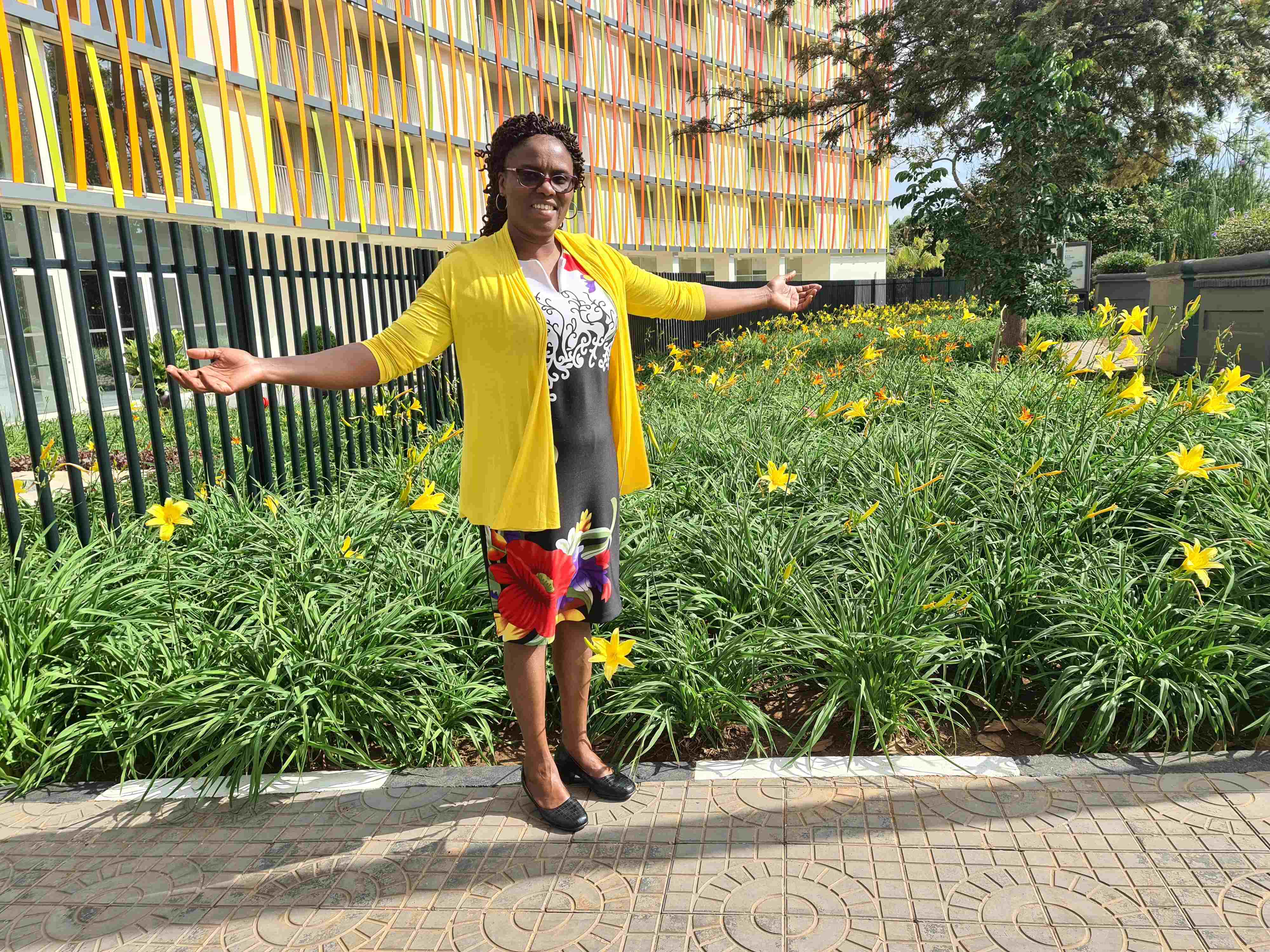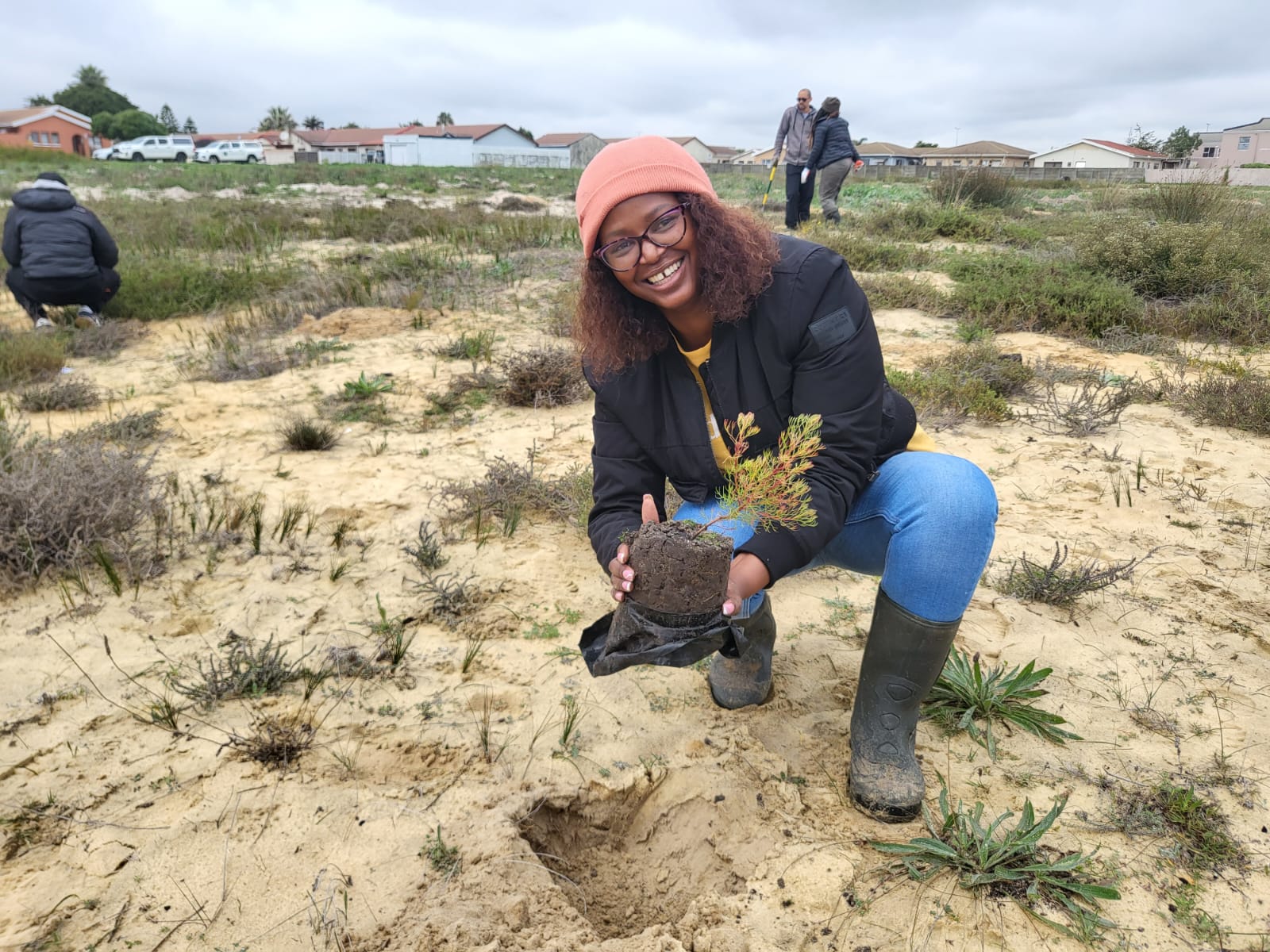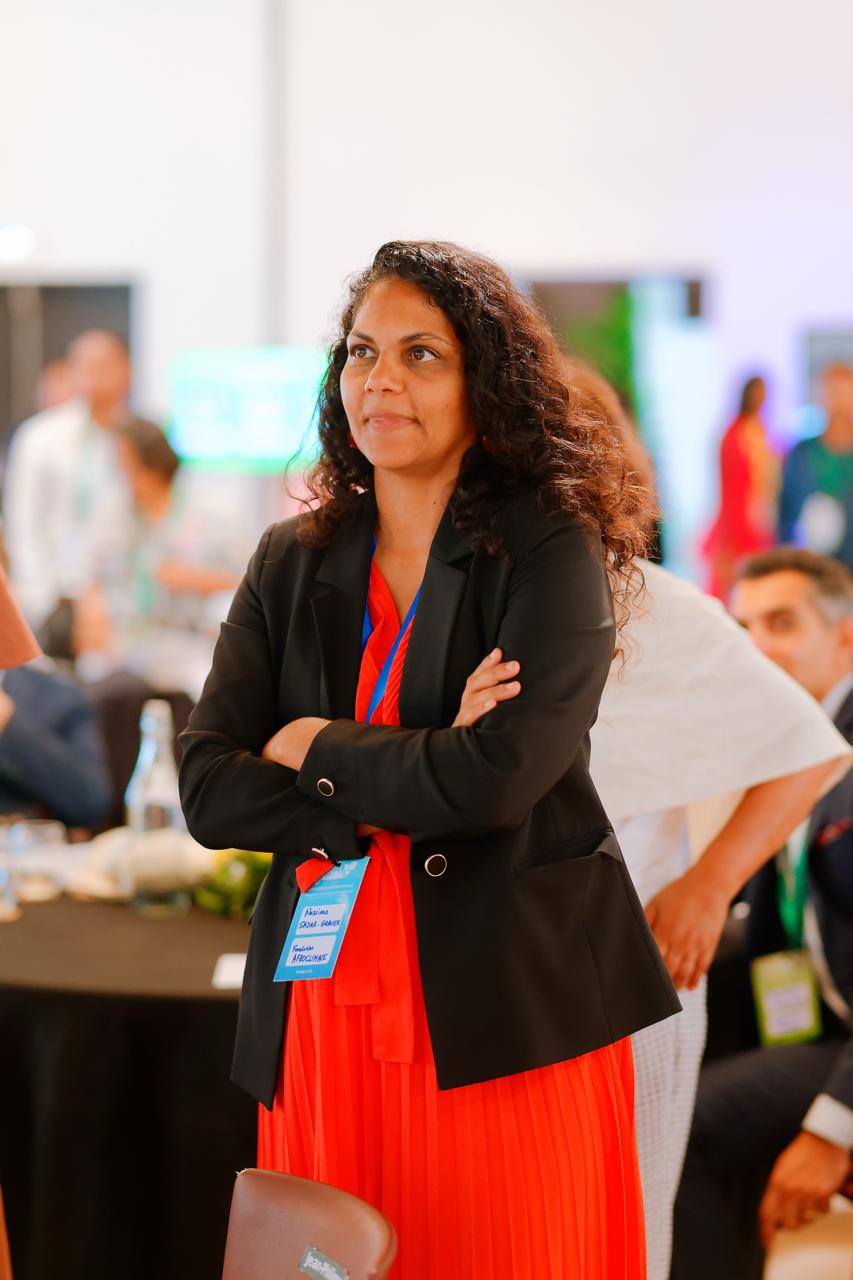Often, the easy option ends up making for the hardest life.
Resilient. Tenacious. Driven. This is Nancy Githaiga. Despite being dealt a less than favourable hand in the earlier days of her life, Nancy has played to win. She started from the ground up, rising through the ranks in the conservation world to become the Country Director (Kenya) of the African Wildlife Foundation (AWF).
Passionate about sustainable development, Nancy believes it is not a choice between development and conservation but a just world where current and future generations can thrive from the natural capital base the planet provides, even in an ever-changing environment.
The Women for Environment 2022 fellow shares insights from her journey with Damaris Agweyu.

Nancy, what overarching principle drives you in all you do?
The need to see justice prevail.
If I witness an unfair situation, I will take a position, even if it impacts me negatively. Is that a good thing? I don't know. But it's who I am.
It sounds like you've had to confront some injustices along the way.
Since I was a child.
When I was 12 years old, I was denied entry into a national school because of my tribe. All my life, I'd dreamed of using my education to break the cycle of poverty in my home. In primary school, I got near-perfect grades and topped my class. I deserved a spot in one of the top public schools in the country. This was the most significant opportunity to come my way. But because I had the “wrong” name—I was from the "wrong" tribe living in a district I didn't belong—I was passed over in favour of other students who didn't do as well but belonged. It stung. But as I was young and didn't have the confidence to fight back, I let it go.
Many years later, I witnessed more tribe-related injustices in my life and career. This time I was older, wiser and more confident. I often fought back, and at times this cost me.
I am also driven to see justice prevail because of my early relationship with natural resources. It was a traumatic affair. I remember the many nights I lay in bed, anxiously anticipating that 4:00 am wake-up call from my mum to go to the stream and fetch water in the biting cold. I remember putting plastic bags over my socks so the water from dew wouldn't seep through my torn shoes. I remember getting wet anyway. Rinse, repeat.
And then, after school, I would go to Mau forest in search of firewood. My life revolved around looking for water and firewood. It felt miserable, but it was also a motivating factor.
I wanted to become a lawyer or an engineer. But because my education had been mishandled, I missed law by one point and engineering by two points. But I did well in the sciences and was admitted for a BSc in Physics and Mathematics at the university.
Leaving for the university was the first time I ever set foot in the city. I washed and packed my old blankets and got on the train to Nairobi, my mum by my side. In that moment, I knew this was the beginning of a new journey—one where I could rewrite my story.
And rewrite the story you did.
Against great odds.
I always knew I was going to drive a car. I just didn't know when. The distance from my village to Molo town is about 7 kilometres. We would have to walk this distance, back and forth, to the posho mill or to buy household goods. I always chose to walk solo. I would hide in the bushes, waiting for everybody else to pass. I wanted to be alone because that was my moment for conversations with myself. One of those conversations happened when I was about 13 years old. I told myself that someday, I would drive on that road.
Many years later, I ordered my first car from Japan. And on this road, I have ridden many times. Giving lifts to women and children walking the same road. The point is I refused to be defined by my circumstances. Today, I look at what I have accomplished relative to where I started, and I say, with all humility, that I am blessed, and I am successful.
Would you do anything differently?
I certainly wouldn't want to relive waking up at 4 am every morning to go and fetch water, but I appreciate that it built a lot of resilience in me. I took this very windy path but landed where I needed to land.
How did you end up here?
Once I was done with my Bachelor’s degree course, I didn't know what to do with myself. My boyfriend at the time wanted to settle down. But I had nothing of my own. I needed a job, at the very least. Other than the difficult childhood, there had been domestic violence in our home. I never wanted to be in a position where I relied on a man to care for my basic needs. Settling down with my boyfriend was an easy option. But often, the easy option ends up making for the hardest life. So, I weighed my options and decided to part ways with my boyfriend and seek job opportunities.
I found a teaching job at a girls’ secondary school in a rural county far from home and sent my first paycheck to my mother to drill a well. The thought of her continuing to make those 4 am trips to the stream killed me. It was time to end it. It is in teaching that I had an opportunity to engage with young girls and encourage them. I still think this was one of my most impactful seasons in life, and of course, the little matter of sorting out the water challenge in our household.
Meanwhile, I'd been exploring the idea of working in water resource management. A friend told me about a scholarship opportunity in Hydrology. UNESCO was looking for women in science. As soon as I got the news that my application was successful, I packed my bags and returned to Nairobi. One and a half years later, I had my postgraduate diploma in Hydrology and I followed that up with a Master’s degree in Climate Change and Sustainable Development. I then joined the NGO world, working in water resource management and became fully immersed in the world of conservation.
Recently, I applied and was admitted to law school. My dream of fighting for natural justice is on the horizon.
What comes to your mind when you think about natural resource justice?
I think about how our unborn children will manage the environment we are leaving behind. I think about how many women's lives are defined by what they must do every day; search for water and firewood. Believe me; there is nothing worse than natural resource poverty. People talk about natural resources as a job. I don't. It runs in my blood.
I empathise with children with nobody to encourage them that life can be different. Beyond conservation, I would want to teach again. And give children the hope that life can be different no matter how windy the path is.
How has the WE Africa journey impacted you?
When I joined the WE Africa program, I wondered whether I had the energy and capacity for one more thing in my life. I had just started a new job, heading our country office. At the same time, I had just come out of a serious personal betrayal. Mentally, I was distraught. I felt like a failure. And yet, I was supposed to show up powerfully in my new job and give others direction.
A friend with whom I had worked and who had been in the first cohort pushed me to join the WE Africa leadership program. I remain forever grateful to her because the program has changed my perspective.
Through the program, I met all these successful women I admire. And as our interactions and sharing increased, I realised I was not alone.
We look at others and assume they've been so fortunate and have everything together. And then we compare our lives to theirs and condemn ourselves. And because of my past, I often felt inadequate. Even knowing I can deliver, I often felt like an imposter. Then I listened to other women share their challenges and feelings of inadequacy and saw the similarities.
And so I learned that not everything is as it seems and not everything has to be perfect. If things are working at 70%, that's an A grade. Even a C grade is a pass. Why are we struggling for some insurmountable 100%? Why not rejoice in those things that are working? Things beyond our control should not be a barometer for our success.
That constant clarion call I have in my notebook is: I am a work in progress.
As long as we are alive, there's always room to improve, but at the same time, I am enough. I can do what others can, but it's my path, and I am not competing with anyone.
How do we model things differently for others, so they are not caught up in the trap of chasing "perfection"?
We need to start with our parameters for success. For many women, success means having a family and children. If you don't have children, there are questions. If you are not married, more questions. If the marriage breaks, it's the woman's fault. I was told I worked too much. It's like I had to choose between my job and a man.
So we must broaden the definition of success and redefine what it means. I believe success is subjective. Success is becoming a better me every day.
As I approach the 5th floor in a few years’ time, I am questioning more. What do I want to do now? What makes sense for my life? I don't need to have all the answers or the solutions. I just need to keep asking questions and see what unfolds. Ultimately, all I need to be is more impactful, touching more lives in my work and ventures.
What have you learned from your life's journey that you could pass on as advice?
No matter how bad things get, they will get better. Time will heal the pain, and through the pain, you will come out stronger.
Following the betrayal in my life, I sat on the ground on a piece of land I had bought on the outskirts of Nairobi, and I told God, "I want to build a house, and not just any house but my dream home".
When I found an architect, he asked me what my budget was. I refused to answer this question. I told him to just draw a plan of the house I want. It should not be dictated by the budget. “We will deal with rest later”, I insisted. He followed my instructions and shared the cost. I couldn't afford it. My estimation had been way off. By more than 50 per cent. I decided to get started anyway; build part of the house and find the money to complete it later. What happened after that was a miracle. The universe conspired, and so many factors came together to work in my favour, and 12 months after the day we broke ground, I moved into the house of my dreams.
I did not have all the money in the beginning. I did not have anybody putting money into that house. But I believed in and manifested my dream. And that is how God works. During that one year, I learned that we worry too much and are much stronger than we think. All we need to do is start. Whatever journey it is, just get started.
And so, throughout my journey, I will continue to dream big, stand up for justice, influence young people and their relationship with the world and the environment, and, importantly, ask questions.
***
This interview is part of a series profiling the stories of the 2022 WE Africa leadership programme fellows, African women in the environmental conservation sector who are showing up with a strong back, soft front, and wild heart.




